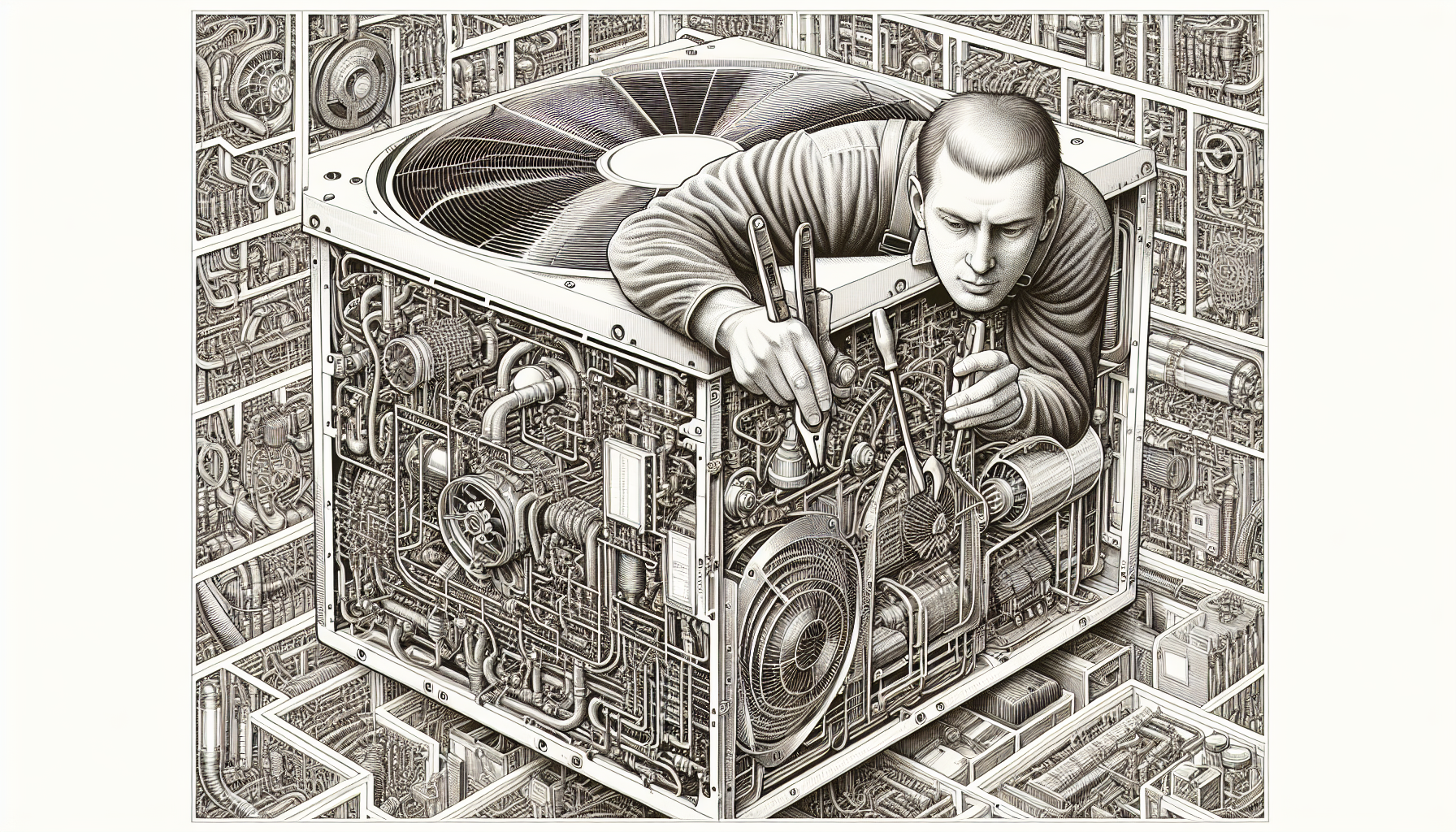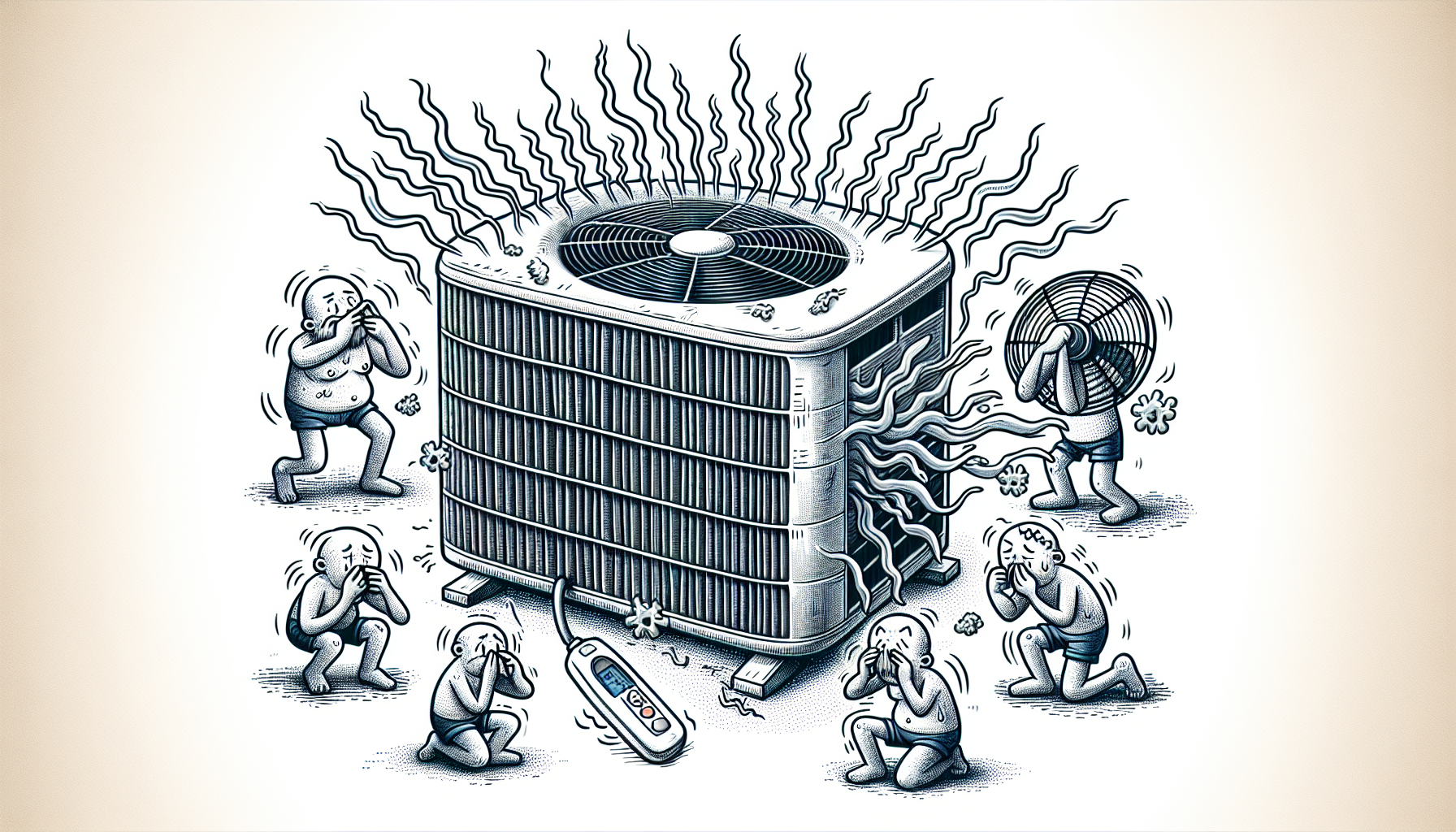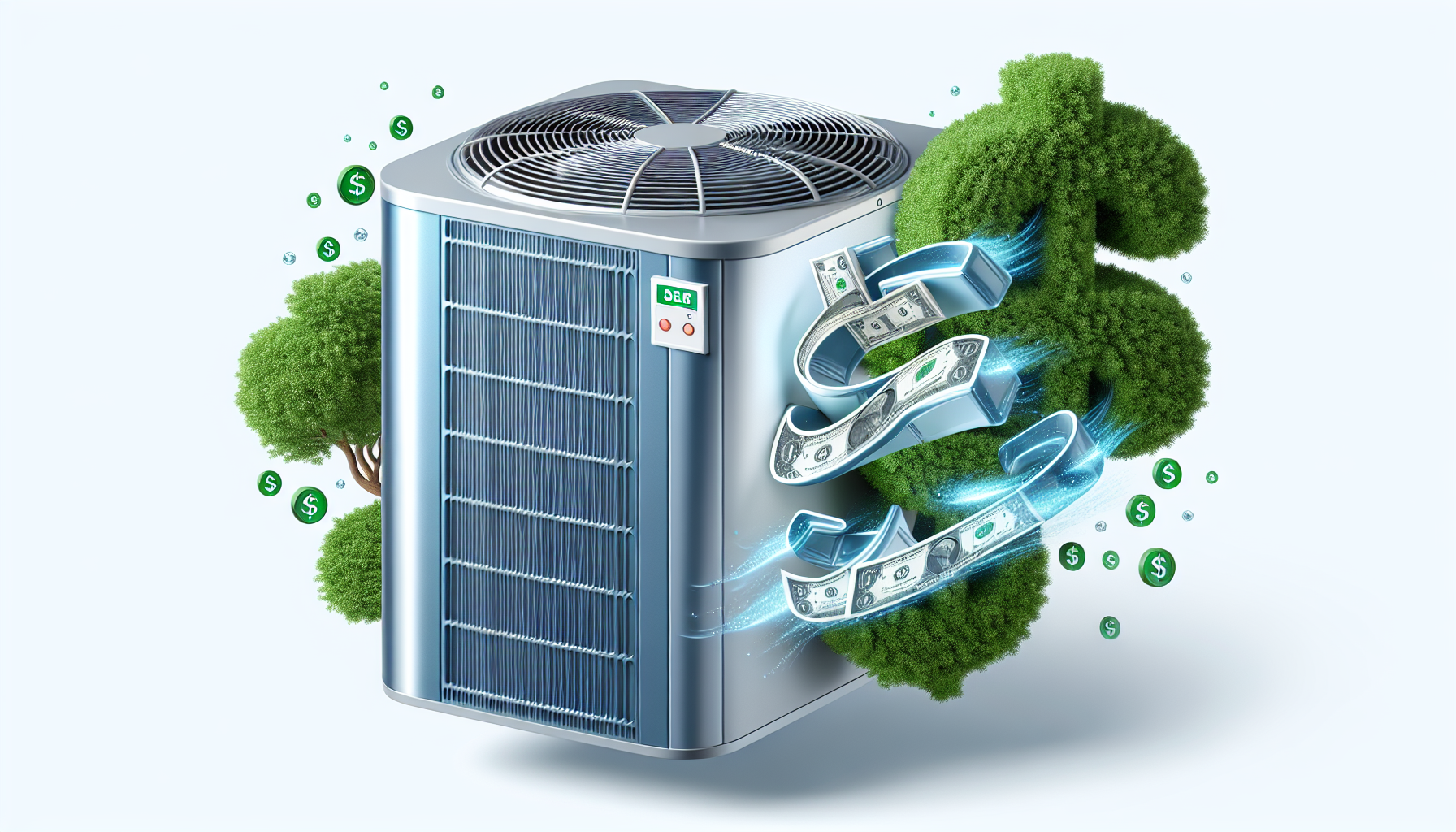Maximizing the Lifespan: How Long Do AC Units Last in Florida?

If you’re living in Florida and pondering the longevity of your AC unit, you’re not alone. Florida’s climate throws unique challenges at air conditioning systems, which can influence their lifespan. Understandably, your concern is practical: “How long do AC units last in Florida?” This article will clarify the expected lifespan and examine factors unique to Florida, preparing you to maximize the durability of your home’s cooling companion.
Key Takeaways
- In Florida, AC units generally last 8-14 years, with harsh weather conditions reducing lifespan; proper maintenance, however, can extend it up to 20 years.
- Regular AC maintenance is essential for longevity, with seasonal tune-ups, clean filters, and professional inspections preventing premature breakdowns.
- An aging or inefficient AC system can lead to higher energy bills and the need for replacement; energy-efficient units save costs and investing in a high-SEER unit is beneficial in the long term.
Understanding AC Unit Longevity in the Sunshine State

In the state of Florida, the expected duration for an air conditioner to function properly is commonly between 8 and 10 years. Some estimates extend this range from 8 to 14 years. The lifespan of AC units may decrease to a span of 7 to 12 years due in part to factors such as exposure to salt-laden coastal breezes found particularly in South Florida and intense cooling requirements throughout prolonged sweltering summers.
Fortunately, if homeowners commit themselves to proper maintenance practices even amidst these demanding conditions, top-tier central air conditioners along with other types of air conditioning systems have the potential longevity extending up into two decades. This ensures that your living space remains comfortably cool for numerous future summer periods utilizing your current AC system.
One might wonder why there’s a discrepancy in life expectancy or average lifespan for ACs compared across different regions — particularly when scrutinizing how long they last within Florida. To address this curiosity about reduced lifespans unique within Floridian climate hurdles will be Examined shortly.
The Impact of Climate on Your Air Conditioning System

The intense heat and moisture of Florida can cause your air conditioning system to exert extra effort, leading to potential premature wear and a decreased lifespan. Imagine running a marathon within the confines of an intensely hot sauna. Without proper preparation and attention, your AC unit could fail before reaching its expected lifetime.
Due to Florida’s tropical humidity, the perpetual demand for cooling because of year-round high temperatures, and corrosive airborne substances naturally occurring in the environment can all contribute to diminishing the longevity of AC units more rapidly than in milder climates. The issue transcends simply keeping cool. It is critical that your air conditioner remains robust under extreme conditions.
There is hope. With diligent maintenance practices put into place for your air conditioning system, you can effectively counteract these challenges. Regular care serves as an invaluable ally for extending the life and efficiency of your AC unit amidst unyielding heat demands.
Regular Maintenance: Your AC’s Best Friend

In the same way you’d routinely maintain your vehicle to ensure its performance, your AC unit requires consistent upkeep. This maintenance can be categorized into three essential aspects: periodic seasonal adjustments, maintaining cleanliness of filters, and obtaining professional evaluations.
Seasonal Tune-Ups
Imagine yourself gearing up for a marathon, yet instead of engaging in training, you opt to relax on the sofa continuously. When the big day arrives, chances are high that you’d underperform. This scenario is akin to how your air conditioner functions. Neglecting regular maintenance—especially before periods of high use—can cause it to falter when it’s time to perform.
Servicing your air conditioning unit ideally should happen during springtime so that once the sweltering summer heat sets in, your system is prepared to deliver efficient and effective cooling throughout those warmer months.
Regular tune-ups do more than just ensure that your AC operates at peak performance. They also play a crucial role in prolonging its service life by identifying and fixing minor issues early on before they escalate into larger complications. Hence, incorporating these seasonal check-ups into your overall AC maintenance plan can be highly beneficial.
Keeping Filters Clean
The accumulation of dust and debris within AC units can compromise their efficiency and may lead to potential failures within the system. When an air filter becomes dirty, it impedes the flow of cool air into the system, which could result in evaporator coils freezing over and might even cause damage to the compressor.
Ensuring that air filters are replaced regularly can stave off dust build-up while maintaining proper airflow, thus easing the pressure on your AC unit. This is akin to allowing your unit a chance for rejuvenation, aiding its ability to operate more efficiently with enhanced longevity.
Given Florida’s climate, where constant use of AC units is common practice, keeping those filters clean becomes imperative. It’s a straightforward measure but one that significantly impacts prolonging your AC system’s life expectancy.
Professional Inspections
Expert HVAC technicians receive ongoing education and certifications that adhere to area-specific regulations, ensuring inspections are comprehensive and meet legal standards. These evaluations can uncover common concerns such as insufficient airflow, electrical hazards including worn wires or insecure connections, and ice accumulation on the exterior coils—each a warning sign of potentially significant complications with your air conditioning system.
Should your AC encounter difficulties, skilled HVAC specialists like those from Big Bear Heating & Air provide swift responses to assess and resolve issues promptly, reducing any interruption in service. It’s comparable to having immediate access to a physician for your air conditioning unit who is prepared to address whatever problems may arise.
A proactive examination of your AC doesn’t just pinpoint existing problems. It acts as preventative maintenance too. Routine expert assessments ensure that the performance of your air conditioning unit remains optimal for an extended period.
Signs It’s Time to Consider a New AC System

Regardless of routine maintenance, a time may arise when replacing your AC system is more economical than repairing it. Be aware of the signs that signal this change.
If you notice your air conditioner struggling with overheating or persistently operating without sufficiently cooling, these could be warning signals that necessitate a new AC unit. Sounds emanating from the system like loud banging or screeching are also concerning. They could signify impending motor failure or damage such as a cracked heat exchanger.
The emergence of foul smells originating from an ac unit often suggests the growth of bacteria or fungus which not only poses health concerns but might also mean it’s time for immediate cleaning—or possibly upgrading to a replacement. A pattern of constant repairs and rising energy bills can point towards an AC nearing its lifespan conclusion. When faced with any combination of these issues, contemplating investing in a new AC system should be on the agenda.
Energy Efficiency and Your Wallet

Considering the replacement of your AC system might seem like a significant undertaking, but it can actually prove to be an economically smart decision. Newer models of air conditioners that boast high energy efficiency can substantially lower the cost of cooling your home—potentially cutting expenses by up to one-third from the very first month they’re operated.
An important metric for assessing an air conditioner’s efficiency is its SEER (Seasonal Energy Efficiency Ratio) rating. The greater this rating, the more you’ll save on cooling expenditures over time. In essence, investing in a new AC system doesn’t just equate to buying a product—it represents a strategic financial choice leading to long-term savings.
Should you notice an uptick in your energy bills without any corresponding increase in power consumption, it may indicate that your current AC unit lacks efficiency. When those rising costs start making you sweat, switching out for a modern and highly efficient air conditioning system could provide relief and coolness amidst soaring temperatures and electricity charges.
The Right Questions to Ask Before AC Installation
Before installing a new AC system, there are several key considerations. The age of the current system is crucial; systems over ten years old, including older AC systems, may have decreased efficiency and functionality, potentially leading to the decision for replacement.
Properly sizing the new AC unit is critical to prevent inefficiency and unnecessary wear caused by over-cycling. Consulting with an expert on sizing ensures the system suits your home’s needs.
Before installation, it’s important to understand all costs involved, the expected timeline, and compliance with local regulations, aided by a knowledgeable installer.
The Benefits of Choosing the Right HVAC Partner
Selecting the proper AC unit is just one piece of the puzzle when installing a new air conditioning system. Equally vital is finding an experienced HVAC contractor with a proven track record. To ensure you are getting top-notch service, it’s wise to ask about the installer’s history and reputation in the field.
It is essential to verify that your chosen AC installation professional has both licensing and insurance as required by industry norms, protecting against potential errors during setup. Clarifying what kind of warranty coverage they provide will give you peace of mind for any future complications related to their workmanship.
For optimal performance and longevity of your air conditioning system, partnering with a reputable HVAC brand like Big Bear Heating & Air ensures not only quality products but also skilled installation services. The right partnership ultimately plays an integral role throughout your journey towards efficient AC implementation.
Summary
In Florida’s distinctive climate, it is crucial to grasp the specific challenges faced in order to prolong your AC unit’s service life. This involves instituting a routine of regular maintenance and recognizing the appropriate time to invest in a new system. By providing proper upkeep, your AC will be able to maintain a cool environment for numerous future summers.
Frequently Asked Questions
How often should you replace an air conditioner in Florida?
In Florida, due to the constant need for air conditioning throughout the year, it’s advised that an air conditioner be replaced every 8-10 years. If your AC system is approaching this age mark of about 8 years old, you should consider getting a new one.
To prolong the life expectancy of your AC system in Florida, taking proactive steps such as fixing any leaky ductwork can prove beneficial. This kind of maintenance work helps ensure your system operates efficiently for a longer period.
How can you increase the longevity of your AC unit in Florida?
Ensure that your AC unit in Florida receives consistent maintenance, encompassing inspections and tune-ups, to extend its operational lifespan.
Such regular upkeep will assist in maintaining the efficiency of your unit over an extended period.
What are some important questions to ask when considering the installation of a new AC system?
Inquiring about the lifespan, state of repair, consistency of maintenance services received, dependability of your HVAC service provider, energy-saving performance and general operability is essential when assessing your existing AC system.
These inquiries will assist you in determining whether to proceed with the installation of a new AC system by providing necessary insights.
Why does the lifespan of AC units in Florida seem shorter than in other states?
Due to the intense heat and humidity in Florida, AC units are subject to more strenuous operation which can lead to early deterioration, thus shortening their lifespan compared to AC systems in less demanding climates.
What are the benefits of choosing a reliable HVAC partner like Big Bear Heating & Air?
Opting for a dependable HVAC ally such as Big Bear Heating & Air guarantees top-notch service, appropriate licensing and insurance, along with warranty assurance. Their compatibility with your selected AC system offers both tranquility of mind and enduring contentment regarding your air conditioning (AC) setup.
